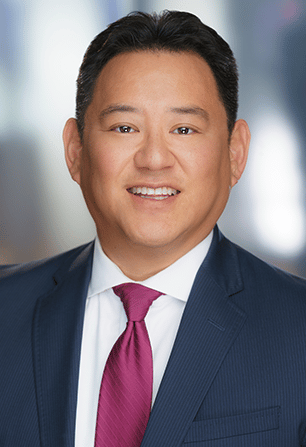Many car accidents result from the carelessness or recklessness of other drivers. Following a crash, several insurance companies may become involved, including the at-fault driver’s and your own insurance companies. When speaking with insurance company representatives, there are certain things that you should refrain from saying to safeguard your legal rights and interests. Usually, it is best to say little or nothing at all to insurers until you have the right legal representation.
Once you involve an experienced car accident attorney in your case, they will handle all written and oral insurance company communications for you. They will also take the appropriate legal steps to secure the financial compensation you deserve for your accident-related losses – including filing the appropriate insurance claim or litigating your case in court.
Always find a car accident lawyer who is compassionate yet highly confident in their experience and ability to achieve justice and payment for you. You want exceptional representation from a loyal team that gets results. Consult car accident lawyers today to find the right firm that will adequately fight for your rights today.
How do Other Motorists Cause Car Accidents?

Car accidents can occur due to various factors, and determining fault is crucial in establishing liability. Another motorist may be at fault for an accident through negligent behaviors contributing to the collision. One common factor is reckless driving, where a motorist disregards traffic laws, speeds excessively, or engages in aggressive maneuvers. These actions increase the risk of accidents and can result in severe consequences for others on the road.
Failing to yield the right-of-way is another scenario where a motorist may be at fault for an accident. Ignoring right-of-way rules at traffic intersections, crosswalks, or merge lanes can lead to serious collisions. Whether due to distraction, impatience, or a lack of awareness, failing to yield is an all-too-common cause of accidents.
Distracted driving poses another significant risk on area roads. When a motorist diverts attention from driving to activities like texting, talking on the phone, or adjusting the radio, they increase the likelihood of an accident. Such distractions compromise reaction times and overall driving abilities.
Drunk or impaired driving is another serious offense that frequently leads to traffic accidents. Operating a vehicle while under the influence of alcohol or drugs affects a driver’s judgment, coordination, and reaction times. A motorist exhibiting signs of impairment can be legally accountable for accidents resulting from their intoxicated state.
Running red lights or disregarding traffic signals is another way a motorist may be at fault for an accident. Failing to adhere to these signals poses a danger to other drivers and pedestrians at intersections. Accidents resulting from running red lights are often attributable to the negligent actions of the offending motorist.
Tailgating or following another vehicle too closely is a common behavior that can lead to accidents. Inadequate following distance reduces reaction time, making it challenging to respond to sudden changes in traffic. Accidents caused by tailgating often result in rear-end collisions.
Inadequate maintenance of the vehicle, such as neglecting brake issues or ignoring mechanical problems, can also contribute to accidents. A malfunctioning vehicle may be more prone to causing accidents due to unexpected failures while on the road.
Another motorist may be at fault for a car accident through reckless driving, failing to yield, distracted driving, impaired driving, running red lights, tailgating, or inadequate vehicle maintenance. Recognizing these factors is crucial for determining liability and seeking appropriate compensation in the aftermath of a collision.
Things You Shouldn’t Tell Your Insurance Company
Suppose you were recently involved in a car accident caused by a negligent driver. In that situation, it remains crucial for you to inform your own insurance company about the incident. In many cases, injured accident victims can turn to the at-fault party’s insurance company to recover the monetary damages they need for their injuries and other losses if the at-fault driver did not possess motor vehicle insurance or had insufficient coverage at the time of the accident. In that case, the accident victim may need to turn to their insurance company for compensation. They can recover favorable monetary damages through a first-party uninsured or underinsured motorist claim.
After sustaining injuries in a car accident resulting from another driver’s negligence, you must be cautious about the information you share with your insurance company.
First, you should avoid admitting fault or accepting blame for the accident. Even if you feel uncertain about the sequence of events, avoid making statements that imply responsibility. Fault determination is a complex process, and providing a definitive admission can ultimately affect your ability to seek compensation.
You should also avoid downplaying the extent of your injuries when communicating with your insurance company. It’s essential to be truthful and thorough about your injuries, ensuring you accurately convey the accident’s effect on your health. Downplaying injuries may undermine your compensation claim.
You should also be cautious about discussing the specifics of your medical condition in great detail. Insurance companies may use any pre-existing conditions or statements about your health against you. Stick to factual information about your injuries without offering unnecessary personal details.
Refraining from providing a recorded statement without consulting a car accident attorney is also important. Insurance companies often request recorded statements to gather information they can use against you later. Seeking legal counsel before providing any recorded statements protects your rights and interests.
You should also avoid discussing settlement too early in the process. Premature conversations about settlement figures may undervalue your claim. Before engaging in settlement discussions, it’s advisable to wait until you comprehensively understand the extent of your injuries, medical expenses, and long-term effects.
Moreover, you should not sign documents or accept a settlement offer without consulting with an experienced car accident attorney. Signing documents without legal advice may limit your ability to seek additional compensation later. Ensure you fully comprehend the implications of any paperwork the insurance company presents.
You should also refrain from speculating about the accident or making assumptions about the other driver’s behavior. Stick to the facts as you understand them, and avoid offering opinions that the insurance company may use against you in the claims process.
In summary, when communicating with your insurance company after injuries in a car accident resulting from another driver’s negligence, exercise caution. Avoid admitting fault, downplaying injuries, discussing settlement prematurely, providing too much medical detail, giving recorded statements without legal advice, signing documents without consultation, and speculating about the accident. Seeking guidance from a car accident attorney early on will help navigate these interactions and protect your interests during the claims filing process.
Proving a Car Accident Claim
Successfully proving the legal elements of a car accident claim or lawsuit resulting from someone else’s negligence involves a comprehensive approach to building a compelling case. Here are some key steps to navigating the process effectively:
- Firstly, establish the legal duty of care. Demonstrate that the other party owed you a duty of care while operating their vehicle. This duty is a legal obligation to drive safely and adhere to traffic laws, ensuring the safety of others on the road.
- Next, showcase the breach of duty. Illustrate how the other party failed to meet their duty of care through negligent actions. This can involve reckless driving, distracted driving, failure to yield, or any behavior that deviates from the expected standard of care.
- Proving causation is crucial. Establish a clear connection between the other party’s negligent actions and the resulting car accident. Demonstrate that their breach of duty directly led to the collision and subsequent injuries.
- Documenting the damages is vital to a successful claim. Gather evidence of the accident’s physical, emotional, and financial consequences. This includes medical records, photographs of injuries and property damage, witness statements, and any other relevant documentation that quantifies the effect of the incident.
- Seek professional medical evaluations. Have healthcare professionals assess your injuries and provide professional opinions on the extent of your damages. Their testimony can carry significant weight in establishing the severity and long-term implications of the injuries.
- Retain expert witnesses if necessary. Depending on the case’s complexity, expert witnesses – such as accident reconstruction specialists or medical professionals – can provide insights that bolster your claim. Their testimony can strengthen your argument on negligence and damages.
- Maintain a detailed record of all related expenses. Keep meticulous records of medical bills, rehabilitation costs, lost income, and other expenses incurred due to the accident. These financial records provide tangible evidence of the economic effects on your life.
- Secure reliable eyewitness testimony. Independent witnesses who observed the accident can provide crucial accounts of the events leading to the collision. Their statements add credibility to your version of the incident and strengthen your overall case.
- Lastly, you should engage the services of a skilled car accident attorney. An experienced car accident lawyer will guide you through the legal complexities, navigate the negotiation or litigation process, and comprehensively present your case. Their experience is invaluable in addressing any legal challenges while pursuing your car accident claim.
Successfully proving the legal elements of a car accident claim involves:
- Establishing a duty of care.
- Showcasing breach of duty.
- Proving causation.
- Documenting damages.
- Seeking professional medical evaluations.
- Retaining expert witnesses if necessary.
- Maintaining detailed expense records.
- Securing reliable eyewitness testimony.
- Engaging the services of an experienced car accident attorney.
This comprehensive approach increases your chances of building a strong case and securing fair compensation for the injuries you suffered due to someone else’s negligence.
Injuries and Monetary Damages in a Car Accident Case
When a motor vehicle accident occurs due to someone else’s negligence, the resulting injuries can vary widely in severity and type. Common injuries include:

- Whiplash – A sudden collision can cause the head to jerk forward and backward, resulting in neck strain and whiplash injuries.
- Fractures and Broken Bones – The force of a collision can lead to fractures or breaks in the bones, often affecting limbs, ribs, or the spine.
- Soft Tissue Injuries – Damage to muscles, ligaments, and tendons may occur, resulting in pain, swelling, and reduced mobility.
- Traumatic Head and Brain Injuries – Trauma or jolts to the head can cause concussions, contusions, or more severe traumatic brain injuries (TBIs), impacting cognitive function and overall well-being.
- Back Injuries – The force of a collision can lead to back injuries, such as herniated discs or spinal cord damage, causing chronic pain and mobility issues.
- Internal Injuries – Blunt force trauma can cause damage to internal organs, leading to internal bleeding or organ dysfunction.
- Psychological Injuries – Emotional trauma, anxiety, depression, and post-traumatic stress disorder (PTSD) are common psychological consequences of motor vehicle accidents.
Seeking financial compensation through a personal injury claim or lawsuit can help address the various costs associated with these injuries. Types of available monetary compensation may include:
- Medical Expenses – This covers the costs of emergency medical care, hospital stays, surgeries, medications, rehabilitation, and ongoing medical treatment related to the car accident.
- Lost Income – If the victim cannot work due to injuries sustained in the accident, compensation can cover lost income and future earning capacity.
- Property Damage – Compensation may include repair or replacement costs for the damaged vehicle and personal belongings.
- Pain and Suffering – Non-economic damages, such as physical pain, emotional distress, and the overall effect on the victim’s quality of life, can be compensable.
- Disability and Impairment – If the victim experiences a long-term disability or impairment due to the accident, compensation may cover the associated costs and lifestyle adjustments.
- Loss of Consortium – In cases where injuries affect relationships, compensation may be available for the loss of companionship or support.
- Punitive Damages – In certain cases where the negligent party’s conduct was particularly egregious, punitive damages may be available to deter similar behavior.
Understanding the range of injuries and the corresponding types of financial compensation available is essential when pursuing a personal injury claim. A skilled car accident attorney will fight for fair and comprehensive compensation for the physical, emotional, and financial consequences of their motor vehicle crash.
Contact a Powerhouse Car Accident Lawyer Right Away
If you suffered injuries in a recent crash, the right personal injury lawyer will handle all communications with insurance companies and their representatives to get you justice and payment for your losses. Your attorney will aggressively negotiate for settlement compensation on your behalf and, if necessary, file a lawsuit and litigate your case to a favorable and efficient resolution.
Seek your free consultation to begin finding the best option for car accident representation near you.











